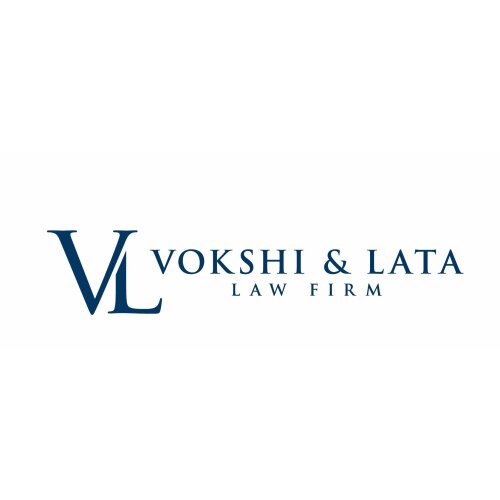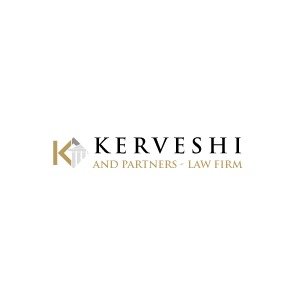Best Tax Lawyers in Kosovo
Share your needs with us, get contacted by law firms.
Free. Takes 2 min.
Or refine your search by selecting a city:
List of the best lawyers in Kosovo
About Tax Law in Kosovo
Tax law in Kosovo is governed by various national regulations and administrative guidelines designed to ensure the adequate collection of revenues to fund governmental services and development projects. The primary law governing taxation is the Law on Tax Administration and Procedures, which establishes the framework for the collection and management of taxes, including personal income tax, corporate tax, VAT (Value Added Tax), and property tax. The Kosovo Tax Administration (KTA) is the main authority responsible for the implementation and enforcement of these laws, working to ensure compliance and fairness in tax collection practices.
Why You May Need a Lawyer
Engaging a lawyer specializing in tax law in Kosovo can be crucial in various situations. Common scenarios include dealing with complex tax calculations, appealing against tax assessments, navigating through audits, or negotiating with the tax authorities. Businesses might seek legal advice for optimizing their tax strategies or ensuring compliance with the latest tax regulations to avoid penalties. Individuals may also need assistance with filing returns correctly or resolving disputes if they are audited or face legal actions by the tax authorities.
Local Laws Overview
Key aspects of local laws relevant to tax in Kosovo include the Income Tax Law, which dictates rates and exemptions for personal and corporate incomes, and the Law on Value Added Tax that mandates requirements for registering and remitting VAT for businesses operating within Kosovo. Additionally, the Property Tax Law governs the evaluation and associated levies on real estate. Recent reforms often focus on increasing efficiency in tax collections, reducing evasion, and providing clearer guidelines for tax compliance.
Frequently Asked Questions
What is the tax year in Kosovo?
The tax year in Kosovo follows the calendar year, starting from January 1st and ending on December 31st.
Who is subject to income tax in Kosovo?
Both residents and non-residents earning income within Kosovo are subject to income tax. Residents are taxed on global income, while non-residents are taxed only on income sourced in Kosovo.
What are the corporate tax rates in Kosovo?
As of the latest legislation, corporate entities in Kosovo are subject to a corporate tax rate of 10% on their taxable profits.
How is Value Added Tax (VAT) applied in Kosovo?
The standard VAT rate in Kosovo is 18%. However, certain goods and services may qualify for a reduced rate of 8% or be exempt altogether.
What are the penalties for late tax filing in Kosovo?
Penalties for late filing can include a percentage of the unpaid tax, along with daily interest accruing until the taxes are settled. It's crucial to adhere to deadlines to avoid these extra costs.
Are there any tax incentives for businesses in Kosovo?
Yes, Kosovo provides various incentives such as tax holidays for new investments, especially in priority sectors like technology, manufacturing, and renewable energy.
How can one appeal a tax assessment decision in Kosovo?
Taxpayers can file an appeal with the Kosovo Tax Administration or seek redress through the Kosovo courts if they believe a tax assessment is incorrect or unjust.
What documents are needed for filing taxes in Kosovo?
Required documents typically include a completed tax return form, financial statements, and documentation proving income, deductions, and credits applicable to the filing period.
How is property tax determined in Kosovo?
Property tax is calculated based on the market value of real estate properties. Rates and assessments are determined by local municipalities according to national directives.
Do self-employed individuals have specific tax obligations?
Yes, self-employed individuals must register with the Kosovo Tax Administration, maintain detailed financial records, and file annual income tax returns, including estimated tax payments throughout the year.
Additional Resources
For more information or assistance, consider the following resources:
- Kosovo Tax Administration (KTA): The official body for all tax-related matters. - Ministry of Finance: Provides guidelines and resources regarding fiscal policies. - Chamber of Commerce: Offers guidance especially for businesses regarding tax compliance. - Local municipal offices: For advice on property tax specifics in your region.
Next Steps
If you require legal assistance concerning tax issues in Kosovo, it’s advisable to contact a lawyer specializing in tax law. Start by researching qualified tax attorneys with significant experience in dealing with local tax issues. Arrange initial consultations to discuss your needs, outline your situation, and explore potential solutions to your tax concerns. Additionally, keeping abreast of changes in the tax legislation through reliable legal counsel or regular updates from the Tax Administration can help in maintaining compliance and optimizing your tax liabilities.
Lawzana helps you find the best lawyers and law firms in Kosovo through a curated and pre-screened list of qualified legal professionals. Our platform offers rankings and detailed profiles of attorneys and law firms, allowing you to compare based on practice areas, including Tax, experience, and client feedback.
Each profile includes a description of the firm's areas of practice, client reviews, team members and partners, year of establishment, spoken languages, office locations, contact information, social media presence, and any published articles or resources. Most firms on our platform speak English and are experienced in both local and international legal matters.
Get a quote from top-rated law firms in Kosovo — quickly, securely, and without unnecessary hassle.
Disclaimer:
The information provided on this page is for general informational purposes only and does not constitute legal advice. While we strive to ensure the accuracy and relevance of the content, legal information may change over time, and interpretations of the law can vary. You should always consult with a qualified legal professional for advice specific to your situation.
We disclaim all liability for actions taken or not taken based on the content of this page. If you believe any information is incorrect or outdated, please contact us, and we will review and update it where appropriate.
Browse tax law firms by city in Kosovo
Refine your search by selecting a city.










